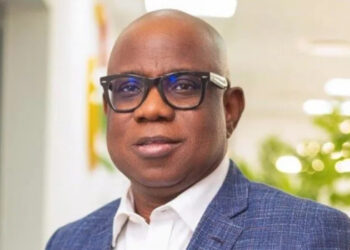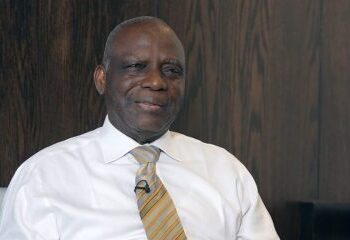President Tinubu assures German businesses of Nigeria’s commitment to reforms, including import duty waivers, energy collaboration, and youth skill development.
On Wednesday, President Bola Tinubu reassured German businesses of Nigeria’s readiness to fully implement key reforms that would ease investment in critical sectors such as renewable energy, youth skill development, and industrial growth.

His remarks were made during a press conference following closed-door talks with German President Frank-Walter Steinmeier.
Also read: President Tinubu calls for increased investment in key sectors during visit to France
Tinubu highlighted several ongoing reforms aimed at creating a more business-friendly environment, including import duty waivers for machinery, decentralisation of power generation, and active foreign exchange reforms.
“We have an open-door policy: ease of entry, ease of exit,” Tinubu stated, emphasising that the government is committed to eliminating bureaucratic bottlenecks in business establishment.
The Nigerian President further explained that tax reforms were designed to be private-sector friendly and that the country’s foreign exchange market was undergoing active reforms to make it more efficient.
“We have import duty waivers for machinery. We have so many other incentives that will help establish private businesses,” he added.
Both Presidents also discussed ways to improve bilateral relations between the two nations, particularly in the realms of people-to-people interactions.
Tinubu remarked, “I can see from earlier meetings that our businessmen and policymakers are eager to engage with Germany. My role is to assure you that our business doors are open and that reforms are working very well.”
A major highlight of the discussions was Nigeria’s energy potential, particularly in gas production and renewable energy.
Tinubu pointed out Nigeria’s status as a leading gas producer and its abundant renewable energy resources, such as solar power, which could be harnessed through German technology to address rural electrification needs.
“We are promoting the possibility of alternative energy sources, but we pride ourselves on being one of the largest gas producers,” Tinubu said, stressing the need for strengthened partnerships to harness these resources for mutual benefit.
Regarding electricity, Tinubu acknowledged the challenges posed by Nigeria’s aging power infrastructure, which is over 50 years old.
He cautioned that despite Siemens Energy’s efforts, Nigerians should not expect an immediate transformation in the power sector. “We are working on decentralising power distribution and generation to improve the situation,” he explained.
The President also underscored the importance of youth training, solid minerals, and industrial partnerships in advancing Nigeria’s development.
He noted, “We have a brilliant youth population that is energetic and ready to learn,” and expressed optimism about the country’s ability to attract German businesses to tap into these opportunities.
Tinubu also called for stronger youth and skill development programs to energise Nigeria’s youth population.
German President Steinmeier, for his part, acknowledged the strong trading relationship between Nigeria and Germany, with Nigeria being Germany’s second-largest trading partner in sub-Saharan Africa.
“German businesses see this as an improvement in investment relations, and the potential for even greater collaboration is clear,” Steinmeier said.
He emphasised the value of Nigerians who study in Germany and return home, describing them as crucial intermediaries for fostering stronger business and cultural ties between the two countries.
Steinmeier also encouraged Nigerian youth to explore opportunities in Germany to further strengthen the bond between the two nations.









